My Prayer To The Briora, Keepers Of Wisdom
My Prayer to the Briora, Keepers of Wisdom
O Wise Briora, Spirits of Knowledge and Order, I call upon you, revered protectors of our cherished tomes and sacred scrolls. In your diminutive forms, you embody the vast wisdom of ages, and I bow before your eternal essence, forever entwined with the treasures of literature. O Briora, guardians of the libraries, bring forth your light to illuminate my mind and heart. As you wander amongst the shelves, sorting and reading, infuse my thoughts with understanding, and guide my quest for knowledge. Let your whispers steer me towards the truths hidden within the pages of the books, where wisdom dwells like a precious gem. With humble reverence, I offer thanks for the peace and order you bring to our sacred spaces. O Briora, as you lovingly arrange the volumes that tell our stories, grant me the wisdom to organize my own life, bringing clarity and harmony to the chaos that often arises. May my path be as well-ordered as the books upon the shelves you adore.
O Gentle Spirits, may my heart always seek knowledge as a treasure waiting to be discovered. In times of doubt and confusion, may I remember your presence as I turn each page, feeling your guiding hand in every word. As you dwell among the whispers of our histories, inspire me to listen, learn, and grow. In honor of your tireless work, I lay before you simple gifts—candles to illuminate the dark corners of wisdom and incense to waft the fragrant essence of devotion. May these offerings please your spirits, for they are but small reflections of my respect and appreciation for your guardianship over the knowledge we treasure. So shall it be, enveloped in the blessings of the Briora, the wise protectors of books and guardians of knowledge.
Syember!
More Posts from Thebowynntradition and Others
Bowynn Gods: Briora
Briora (Bry-or-rah) The Briora are Kii (spirits, fairies, nymphs) of wisdom, organizers of books and protectors of buildings like libraries and other places where tomes of knowledge and records are kept. The Briora are diminutive spirits a lot like their European Fae cousins but do not bare wings at all. They take up residence in libraries among the books, where they indulge in reading, cleaning, maintaining and sorting books that are out of place. The Briora are the immortal essence of the term “A treasure in books.” In Bowynn libraries, images of the Briora and a shrine to them are kept. Most heavy readers will even places small images of Briora on their own bookshelves. Gifts to them are generally simple like a candle and incense. Even candy.
Blessed Winter Solstice

Bowynn Gods: Boquinn
Boquinn (Bow-kwin) (also Soquinn) The Boquinn are the Bowynn are Kii giants of the forests and mountains and the protectors of them. Boquinn are hairy ape-like spirits, they are often solitary wanderers of the unlike other Kii that often work together. They were created by Brand to keep the woodlands safe from Mano’s wrath and pranks and the destructiveness of the Tii. Unlike other Kii, they do not speak like humans but more like animals. Legends say that for a person to see a Boquinn, will bring the person great blessings. The Boquinn are in general, peaceful, unless people get too close. When a Boquinn does present itself as vicious, it is normally a warning that some great change is about to take place that will disrupt their homeland.
Bowynn Gods: Dhonan




Dhonan (Ah-ku-ah) Dhonan is a mortal blessed god of love and passion. He was born mortal, his parents names unknown. But he was given the rare and blessed gift of immortality and took the role of that of a god of passion and true love.
Dhonan was a simple ranger and hunter in his mortal life but in mortal terms, he was extremely handsome. Handsome enough that he caught the attention of Brenda, goddess of love. For the longest time she would visit Dhonan while he was out in the forests hunting and trapping, presenting herself in the guise and a simple woodsman's daughter. These daily encounters lasted a good long time because Brenda never revealed to him who she was. Eventually Dhonan found out the truth, talking to a wood Kii but his heart never changed for the goddess. At the same time both Dhonan and Brenda knew that this love they shared could not last because Brenda knew she could not live amongst mortals and Dhonan would never be allowed to live in Alaway. Brenda went to Dhonan one last time while he slept. This was to bid him goodbye. The goddess Kalma was so moved by this devotion that she allowed him to pass quietly in his sleep and then granted him the blessing of immortality, thus making him a god. In this way Brenda and Dhonan would be united forever.
The Wedding of Dhonan and Brenda was said to be oone of the grandest ever. All of that Kykua attended, in a grand forest under a white canopy.
As a god, Dhonan is a most loving god. He blesses couples of weddings to uphold the vow of love and to hold it unconditionally. He is seen as a handsome young man, dressed more than often in hunting garb with a quiver of arrows on his back and bow in hand. Most of the time Dhonan is seen with his consort, Brenda but at weddings he is seen with the goddess Rhya, blessing and sanctifying the wedding couple. Dhonan sees that vows and oaths of love are kept. This is his main attribute.
Sacred to Dhonan is the wedding fillet that is used to symbolically bond the couples' hands. Also sacred to him is the bow and arrow and a wreath of ivy, which Dhonan is sometimes said to be seen wearing.

Dhonan and Brenda

The wedding procession of gods to the union of Dhonan and Brenda

The Elements / Tau Retammas

Fire {Phoenix} - The Hearth {Tau Io}
The first point of the Numatam represents all the aspects of the element of Fire (Creation, Passion, Love, Warding, Transformation, Energy, Enthusiasm, Courage, Determination, and Boldness). There are two types of fire in the world: Wild and Domesticated. The wildfire is the fires that created all - molten earth solidified and thus created ground. But wildfire also destroys as well. Wildfire burns the forest down, so a new forest can take its place as the ash feeds the earth. It burns as it changes all it touches, and in the moment of that change comes new growth. Domesticated fire gives us life by its warmth and light. This is the fire we as mankind have tamed and mastered (even though we will never really be able to master any element). We build our hearth fire, thus bringing us closer as a community or family. With hearth fire we light lamps and candles to light our homes and our way. As fire burns so do our hearts with deep love and heart felt emotions. From gazing into the fire, we watch the flames dance and spark, giving our body’s energy and enthusiasm. We challenge fire at times, holding our hands over the heat burning ourselves, thus giving us courage to take on dares and obstacles. And with fire in either form we use it to ward away that which we do not want to harm us. We cook with it daily, even enjoy the darkness by it. Even in its modern form, electricity, we gain all these same lessons. We ask it to bring energy to our spells, and we light our incense with it. The sun is one of the heavenly bodies which burns and warms our bodies with its radiant heat. At night the hearth flame does the same. The virtue associated with this element is Courage. When passion fuels our desire to make changes in our world, or when we choose not to settle for anything less, we summon our courage to deal with unpleasantries or things we need to face in our lives. We find our own strength with courage, which when faced with problems seemingly overwhelming to do something about them. Fire is primal and sensual. Fire burns within us all and each of us can summon this energy to do what must be done. Courage should be instilled within our souls to help us grow and face our fears and help gently push our limitations. The path of fire is a dangerous one emblazoned in the hue of red.
The Bowynn Faith
So with the posting of the holidays/Calendar, that is pretty much all to post. Gods, implements, holidays, proper offerings... I am not sure what else to post at this point. That is outside of holiday details as they fall.
So if there are any questions at this point, you are free to ask.
Bowynn Gods List (Simplified)

Below is an extremely simplified list of the divine that exist withing the Bowynn faith. Again, I stress this is a VERY simplified listing of their divine attributes.
Abennaea Goddess of all sorts of offerings and libation
Abonna Gods of music, dance and the arts
Adarro God of the sea, fish, dolphins and cleansing
Aetenn God of armories, protection and drumming
Alaway Home of the Gods. The Great Hall
Aleglea Goddess of happiness and joy. Patroness of all Bowynn
Allapae The Upper World, Heaven, sky, universe
Amaetheon God of wine, abundance, oil and honey
Anhur King of the gods, men, kings, council and judgment
Ano Taya Goddesses of fate, past, present and future
Arn God of the north wind
Bia Creation, the force and balance of all things
Brand God of music, prophecy, archery, poetry and oracles
Brea Goddess of the earth and earth element
Brenda Goddess of beauty, love and vanity
Briathenaea Goddess of protection, invention and wisdom
Chumash God king of the Daunnat and the dead
Dadjall God who leads the soul through Daunnat
Dae Primordial Darkness & Light combined created by Bia (Not a Deity)
Daekk God of wealth, fortune and abundance
Daeth God of darkness and night
Daunnat The nextworld where souls go at death
Deanna Goddess of the harvest and earth fertility
Dhonan Immortally bless mortal and god of love, passion, beauty and vanity.
Drautmer God of Music, drumming and drummers
Drudenn God that is the stable boy of the gods
Ehrlik Ancient Giant god of druids, bards, historians and
Enya Goddess of the morning and the dew
Gondor God of the forge and blacksmithing
Hawynn God of the great river Muet and all rivers, dams and fishing.
Hemway Goddess patroness of the poor, homeless and compassion
Hern God of the wild wood, animals and the sun
Heron God that delivers the souls to Daunnat
Hyu God of baking, ovens and bread. Baker of the gods
Ikarro The Milky Way. The bridge that lead the gods to earth
Innapa The Middle World, mortal earth
Io Goddess of the hearth, tame fire, cooking and kitchens
Ion God patron of knights and god of virtues
Issen Ancient Giant god of the summer season
Istra Goddess of the 3 fold law, respect and vengeance
Jarda 5 Kii Guardian Spirits
Jayleen Jarra Goddess of the healing arts and medicinal herbalism
Kalen God of wood craft and architecture
Kalma Queen of the Daunnat, divination and oracles
Kara Jarra Goddess of the healing arts of massage, reiki and other healing touches.
Kauldra Queen of the sea and all fresh waters
Kii Spirits/faeries/nymphs/elves/gnomes
Kora Goddess of the Autumn season
Kord God of peace, law, justice, freedom and brotherhood
Lomaun God of hunters, travelers and bears
Luanna Goddess of fields, meadows and gardens
Lyan God of the east wind and east
Lyanna Goddess of the lute, music and musicians in general
Maena Goddess of balance, truth, order and victory of all sorts
Mammont The race of Ancient Giant Gods that came before the Akua
Mano God of hate, jealousy, tricks and destruction
Mask God of wisdom, gambling and music. Messenger of the gods
Morrighynn Goddess of the moon, night, stars, hunt and wolves
Muet The river that flows from Alaway all the way down to Daunnat
Mura Goddess of the 1st Gate of Daunnat, of courage
Myliea Goddess of the winter season
Mystara Goddess of the magical arts
Naddas God of the 2nd Gate of Daunnat, of kindness
Nae Ano Taya, young goddess of the past
Naea Goddess of wells, pools, fountains and springs
Naerea Goddess of sleep, dreams and prophetic dreams
Nareen Ano Taya, elder goddess of the future
Narna Ano Taya, She is the Mother goddess of the Present
Nauidd Goddesses of the hours of the day
Nyalla Goddess of bathhouses, sweat lodges and hot springs
Odjett God of the 4th Gate of Daunnat, of balance
Ohenn God of time and journal keeper of the gods of mortals deeds
Oken Ancient Giant god of strength
Onaur God of love and passion
Ortsal God of the 3rd Gate of Daunnat, of love
Owenn God of health and healing
Panu Goddess of gem crafting
Paut God of the element of Soul
Pedjed Goddess of the 7th Gate of Daunnat, of peace
Pequiss Goddess who is the gatekeeper of Daunnat
Phoenix Goddess of fire and the element of fire
Quatt God of the 5th gate of Daunnat, of faith
Quilla Goddess of the Spring season
Reye Goddess of the rain, hunt, protector of animals
Rhya Queen of the gods and goddess of women’s rituals and psychics
Rhymar God of the 6th Gate of Daunnat, of charity
Ryan God of the east and west wind
Saphon God of the south and south wind
Saul God of the light and day
Saulnat God of light in Daunnat
Shane God of love, desire and homosexual love
Shayla Goddess of the day and light
Sheli Ancient Giant Goddess of Expeditions, courage and bravery
Sumon God of all waters and the water element
Tane God king of the sea, horses, shapeshifting and scrying
Tarma Ancient Giant God of invention, wisdom and creativity
Tarna Goddess of the summer season
Tennaer Home of all the sea and oceanic gods
Tii Small malicious spirits that pester humans and gods alike.
Tora Goddess of the night and darkness
Traydea Goddess of childbirth and childcare
Treya Goddess of sunset and dusk
Tsellet Goddess of Duannat who purifies the soul
Tya Goddess of the element of Spirit
Tymora Goddess of fortune, luck and wealth
Tyr God of protection, soldiers and war
Unthar God of the air, sky and the air element
Uya Jarra Goddess of the healing arts and physical therapy
Vadyss God of Duannat who separates the Soul, Spirit and Body
Vae Anicent Giant goddess of seed and fertility
Vella Goddess of jewelry making and gold and silver smithing
Yormell Ancient Giant God of the weather
Bowynn Gods: Luanna
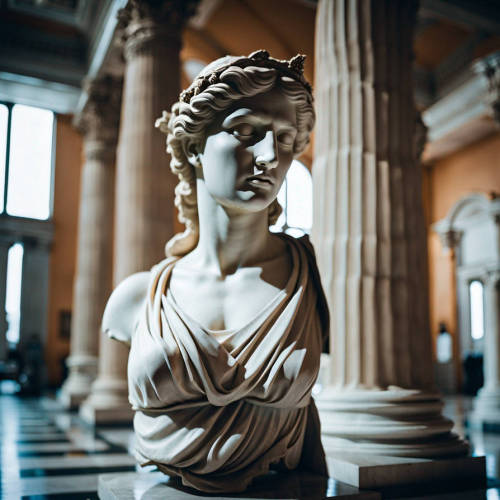
Luanna (Lu-Ahn-Nah) Luanna is the Bowynn goddess of gardens, flowers, meadows and fields and guardian of flowers. She is also the patron of florists and nursery owners. She is the daughter of Brea and Unthar.
She is also something of a weather goddess, making sure that destructive storms do not fall and destroy her beautiful gifts. Herbs and flowers are used not only magickally but medically, so in essence she is also considered a healing goddess. The flowers she brings to bloom are used to fragrant clothing washes as well as dye cloth. Little is said or spoke about when it comes to Luanna. Like all deities of the Bowynn faith, she is just accepted as "being there." She is often seen wandering gardens and meadows, bringing forth blooms and flowers. She is a goddess of frivolity, much like the great patron Aleglea. However, Luana's realm is strictly reserved for bringing forth colorful life in the garden. Sometimes she is seen with Aleglea and/or Jayleen Jarra, goddess of herbalism. It is said that Luanna's job in Alaway is to decorate the great halls with her gifts, thus giving the great hall of the gods a wondrous bouquet-like smell. On the Spring Equinox and (which in the Bowynn Tradition is called "Tsaquilla") Luanna is given high praise, as she is the grower of the scared flowers that symbolizes the holiday. Tsaquilla is a 3-day holiday and it is on the 3rd of the holiday, Luanna is given the most praise with great blessings of gardens and her statue or shrine in home gardens is cleansed and tended to. On Tsaquilla, small gardens are arranged just for the goddess.
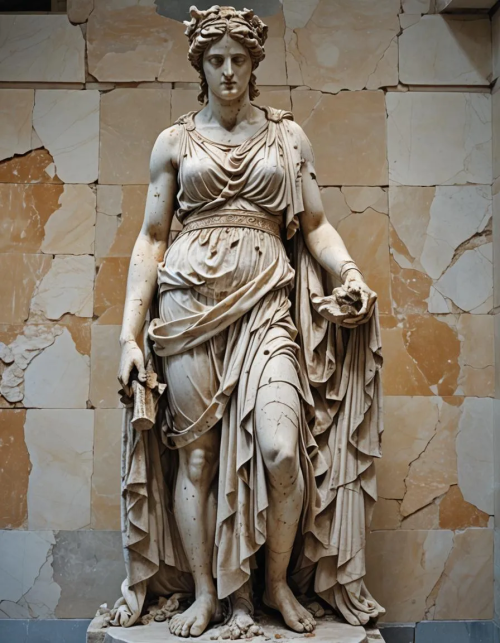
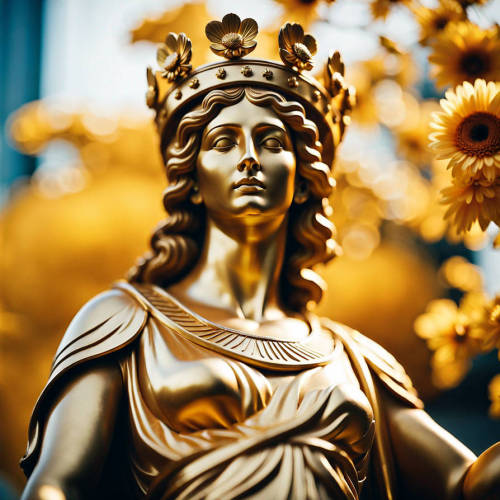
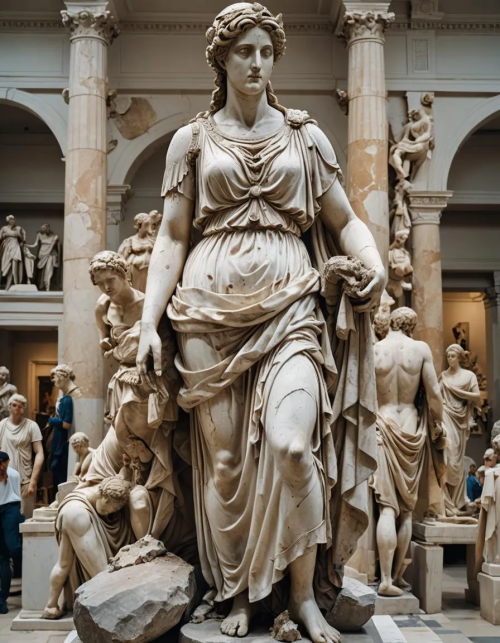
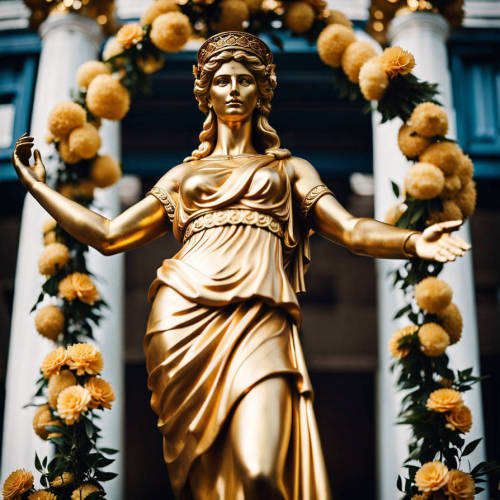
Luanna is said to be a most beautiful goddess of simple beauty. Her garments as soft and flowing but simple as well; often a simple green gown/dress and over it a brown hladd or shorter tunic. Sometimes she is seen crowned with a simple braiding of flowers but nothing too bold. In her hands she carries a basket and sometimes a garden shear or boline in her hand. Other times she is seen carrying a bowl of seeds. When not seen in this form she will take the form of a bee, which is her totem animal. Naturally sacred gifts to Luanna consist of flowers bulbs and seeds.
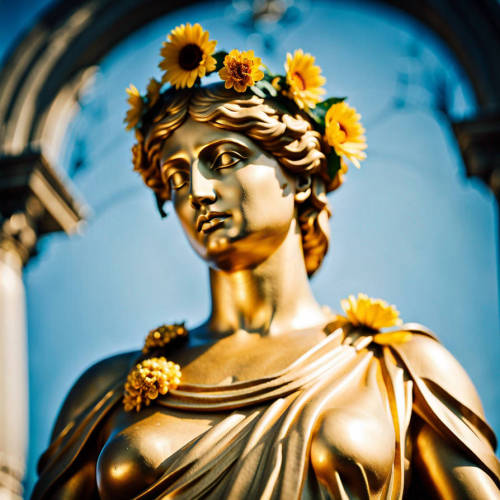
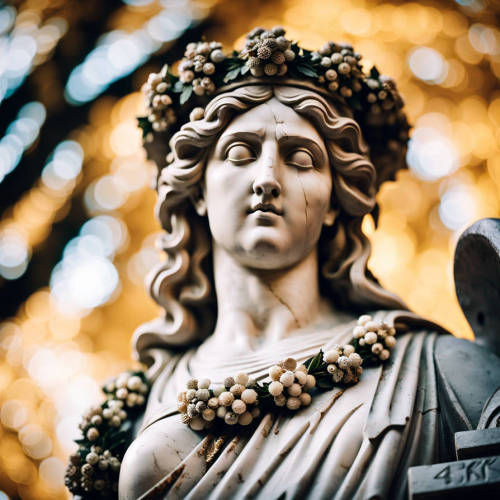
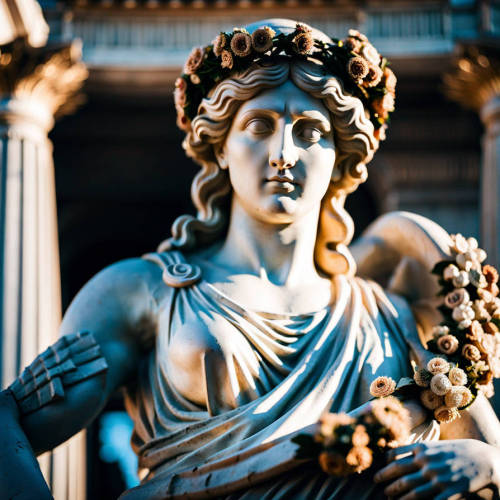
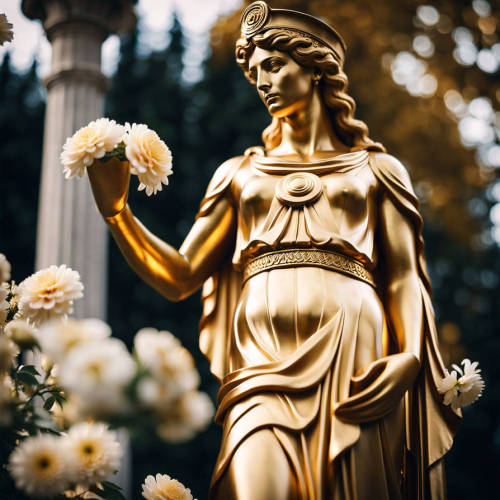
My Prayer to Dadjall
O Dadjall, Son of Kalma and Chumash, gracious guide of the departed souls from the shores of Evermore to the luminous realm of Daunnat, I humbly seek your presence in this sacred moment. You, who traverse the most wondrous landscapes ever born, lead the spirits with love, compassion, and gentle authority. With your charming smile and steadfast heart, may you continue your labor of love, guiding each soul to the embrace of your beloved parents. O Handsome Wanderer, adorned in shades of black and burgundy, with your staff and crystal orb, I call upon you to be the shepherd of the lost. Let my heart be filled with confidence, for your loyal companion, the dog by your side, embodies the fidelity of love that transcends worlds. Bestow your watchful gaze upon the departed, ensuring they find peace as they journey toward Lord Chumash and Lady Kalma. In reverence, I lay before you the sacred offerings of incense, fragrant blooms nourished by earth, and fresh water to quench the thirst of those transitioning from life to afterlife. With votive candles aglow, may they shine like stars on the path you forge for the souls you guide, illuminating their way toward the eternal union of love and light.
As you shepherd the spirits across the horizon, may each soul’s essence echo in the hearts of the living. May we honor their memories, cherishing the lessons imparted, acknowledging the ties that bind us across the veil of existence. O Dadjall, with each passing day, may your journey inspire love and connection among all who breathe. With a heart full of gratitude, I commit to honoring your duty and your compassion. May my life be a testament to the love you share with the departed, and may I strive to reflect your nurturing spirit in my care for others. So shall it be, in honor and adoration of Dadjall, the beloved guide of the souls, forever wandering in the beauty of the realms beyond.
Bowynn Gods: Ion

Ion (Eye-on) Ion is the God patron of knights and god of knighthood virtues. The son of Anhur and Rhya, Ion is the right hand of Anhur, the god king’s eyes, ears and messenger. But foremost, Ion is the god that keeps the sacred virtues in check and sees that people are adhering to the virtues set down by Bia and Anhur. While these days Ion can also be seen as a god patron of all soldiers, he would he would be more leaning towards those that whom serve high and special ranks. Especial those like the Guard of Unknown Soldiers, Guards of Kings, Queens and Presidents and other prestigious positions.
Many sacred tales of Ion and his exploits are told. The most famous being the days when Ion spent his seven days with the first mortals to teach them might and right and to honor the virtues set done by his father. Another tale speaks of a troop of 10 soldiers that fought for ten days straight without food, water or rest against invaders. After the long battle was at-last won, their deeds were caught by Ion. In turn he knighted them with special titles and blessed them. This was mortal man’s first knighthood. Another tale speaks of a time many years later; a knight that was blessed by Ion had grown to see over 100 years. And in all those years, he had ever held vigil over the god’s temple and fought to protect his hometown. On his death bed Ion came to the old man. He asked who would watch over his town. Ion gave the knight his greatest blessing, that of immortal sight, turning the old man into a star and naming him Arnmor, The North Star. That way, even though dead, he could always watch the good people, year round.
Ion is often seen and depicted as a young man, a warrior. And he is dressed as such, partially armored with a long sur-coat over his armor. In one hand Ion bears a shield, in the other a sword. But he is not to be feared and is not a god to wage war. In Alaway his position is next to his father Anhur. When not in his godly form, Ion takes the form of a greyhound. Sacred offerings to Ion is incense and votive images of dogs

Exploring the Faith, Sacred Way and Mystical Arts of the Bowynn Tradition
281 posts